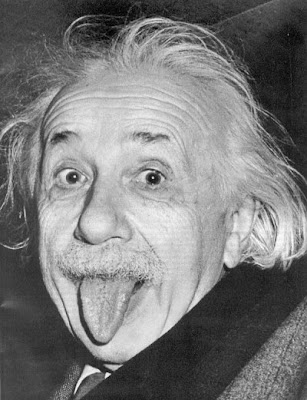 "To know the truth of history is to realize its ultimate myth and its inevitable ambiguity."
"To know the truth of history is to realize its ultimate myth and its inevitable ambiguity."- Roy P. Basler
Generally, I have never been one to want to participate in philosophical arguments; Mostly because I feel like its pointless. In a lot of ways, philosophical arguments are a way to argue for the sake of arguing. At the same time, I think it can be somewhat entertaining to present logical conflicts in virtually flawless arguments.
Case & Point: The foundation of my theory on knowledge.
Logic versus Faith. One of the most frustrating arguments, which is usually attributed to the "great debate" of whether a deity exists or not, is validity. In other words, "How truthful is what you believe in?" and "How can you believe in something that you can't prove is true?" This is not about religion. This is about understanding that we all believe in a little magic, which only makes it fair to not be quick to cast judgments.
For conversations on Christianity, it seems like the first thing that gets attacked is the bible. Anyone who knows anything about the bible knows that it is something like a history/handbook/manual for Christians. After this point people can go a million different ways. True or not, everyone knows that this is a point of reference for Christians.
Believers and non-believers alike, resort back to the argument of logic versus faith: How can you believe in a book that was written thousands of years ago by people? Even better, when I was in high school, two of my peers were talking and suggested that they write a book with a whole bunch of crap in it and bury it, so that in a couple thousand years people could live by it.
Rude? Yes. Logical? Yes.
Unfortunately, the flaw in this logic is: Isn't this how all "truth" is acquired? Someone writes it down, saves it, someone discovers it, and we believe it. To make it even more "valid", we have "specialist/scientists" confirm the things that we believe with statistics that we can't track. How many times has the FDA approved a drug that was proven to be beneficial, to later have it recalled for ridiculously dangerous side effects?
Better yet, the world once believed that the earth was flat, African Americans were genetically subservient to Whites, and Pluto was a planet. All of these things were considered "truth," people took them for facts, and they were later dis proven. If all information has to be taken with a grain of salt, Don't we all practice a little faith? A Little Hope that the information that is presented is factual?
We consciously make the choice to believe everything that we choose to believe. This presents the idea that there is no such thing as the "faith-less" or "people that are simply devoted to the cold hard facts"; We all believe in something.
If faith is the belief in something that cannot be seen or proven, Don't we practice faith on a daily basis? And if all it takes for something to be truthful is someone's recollection of the history through a story or writing, then Why is it outrageous to take a book like the bible for what it is, a collection of acts and instructions from God?
We wake up and breathe, expecting to take in oxygen. We close our eyes and go to bed, expecting to wake up. We go to school and become educated, in hopes that the information is relevant knowledge. We watch the weather and change our clothes to dress appropriately. These are all things that we do on a daily basis that we establish a sense of hope and faith in.
Think about it.
I leave you with this: What is knowledge? What is truth? What's wrong with believing in something that you can't 100% say is factual? What's wrong with having a little faith?

No comments:
Post a Comment